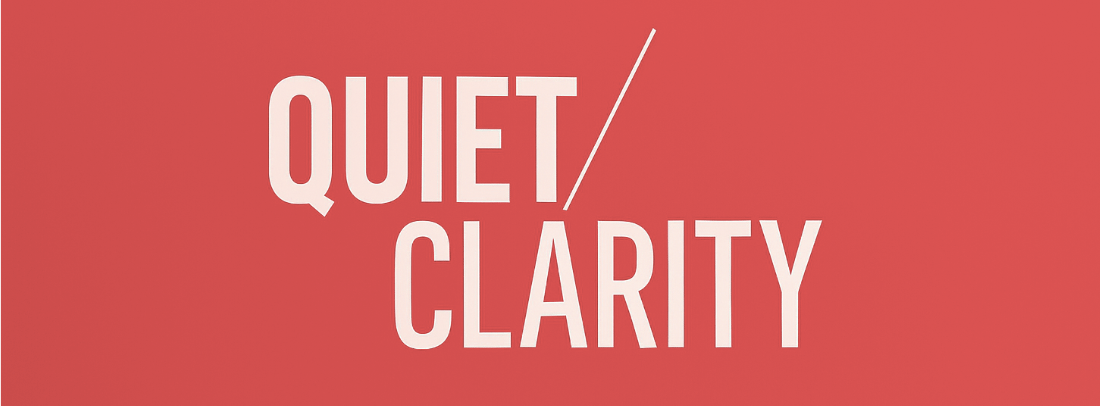
Quiet Clarity is a 2x/week newsletter and podcast for people who want to build a life of presence, depth, and deliberate intention.
Have you ever lied awake thinking about things you can't control?
How will I cope when my parents pass?
What if I never find success?
What if I end up alone?
Without realizing it, you're living in constant overthinking, drowning in uncertainty.
You try to control everything, but the more you grasp, the more slips through your fingers.
Meanwhile, the things you can actually influence sit neglected while you worry about the uncontrollable.
What if the secret to certainty isn't controlling more, but knowing what to release?
How much energy do you waste on battles you were never meant to fight?
Where It Showed Up in My Life
For a period, I was consumed by thoughts I couldn't control.
Future losses, potential failures, imagined disasters.
I was so busy worrying about tomorrow that I forgot to live today.
Then I realized this overthinking was dragging me down, stealing my present for a future that might never come.
So I made a simple decision:
If it's in my control, I'll do my best. If not, I won't waste another thought on it.
I started spending quality time with family instead of worrying about losing them.
I focused on building my business instead of fearing failure.
I worked on becoming someone worthy of love instead of worrying about being alone.
When did I realize that trying to control everything was actually controlling nothing?
What the Wisdom Reveals
During World War II, Viktor Frankl was sent to a concentration camp.
He lost his family, endured brutal conditions, lived in complete uncertainty.
He didn't know if he'd survive another day.
Everything had been stripped from him—freedom, dignity, loved ones, possessions.
But in the middle of unimaginable suffering, he discovered something profound.
While watching fellow prisoners, he noticed a pattern.
Some gave up immediately, crushed by circumstances beyond their control.
Others, despite facing the same horrors, found ways to maintain their humanity.
What made the difference?
Those who survived focused on the one thing no guard could touch—their minds.
They couldn't control the beatings, the starvation, the loss.
But they could control how they responded.
Frankl later wrote: "Everything can be taken from a man but one thing: the last of the human freedoms—to choose one's attitude in any given set of circumstances."
He saw men share their last piece of bread with others.
He watched people find meaning in helping fellow prisoners.
He witnessed humans choosing compassion when everything pushed them toward bitterness.
In the most controlled environment imaginable, Frankl discovered the ultimate freedom.
Not the freedom to change what happened, but the freedom to choose who you become because of it.
Even in a concentration camp, even facing death, the human mind remained sovereign territory.
How I'm Trying to Live Now
Am I focusing on my kingdom or trying to rule the universe?
The Bhagavad Gita teaches: "You have a right to perform your actions, but you are not entitled to the fruits of your actions."
Do your best, then release.
I've learned to separate what I control from what I don't:
Within my control: My effort, attitude, responses, choices, growth.
Outside my control: Others' opinions, outcomes, circumstances, the past, the future.
Studies show people who focus on their sphere of control experience less stress, more confidence, greater resilience.
Buddha explained it perfectly: "In life, we can't always control the first arrow. However, the second arrow is our reaction to the first. The second arrow is optional."
Pain is inevitable. Suffering is what we choose.
When I focus on my inner circle:
I stop stressing about things outside my control
I attract others who also focus on what they can influence
I fall in love with the process instead of chasing outcomes
I feel more present and every moment becomes richer
Anxiety begins when you try to control what's not yours.
Peace comes from mastering what is.
Certainty isn't about controlling everything—it's about controlling the right things.

